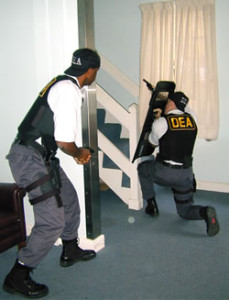Part of our continuing series of first page critiques…
The scar across his cheek was itching; he didn’t like what was happening. The waters of Puget Sound were surprisingly calm that night, but since the moon was hidden behind a thick layer of overcast clouds you couldn’t tell unless you were actually in a boat. Not that Ramtin could enjoy the night sky; he wasn’t keen on boat travel. In spite of his misgivings, everything on the boat was going smoothly. The diesel engine in the next compartment sat quiet. It was normally only used to charge the large compliment of batteries for the electric drive. The electric motors, which were currently in operation, whirred without incident. The hydraulic lines that seemed to go everywhere were holding their valuable fluid, to be used when called upon by the captain. Along the sides and roof of the hull tucked into races neatly arranged near the hydraulic lines were a myriad of stainless steel braided electrical wires painted an odd shade of off white for various control and sensor operations.
To say it was claustrophobic inside was an understatement. But this wasn’t first class traveling. This wasn’t even third class. This was travel under dubious circumstance. Even though they were running under electric power, the smell from the diesel engine hung in the air like a sort of omni-presence. In a submarine, because of the enclosed space, that smell permeates everything. And it only serves to aid the claustrophobic feeling inside knowing you’re surrounded by the cold blackness that is the water just beyond the thin plating of the hull.
Critique:
I’ll start by saying that I love the title, PUGET SOUNDS, in general, but it seems better suited to a literary novel than a thriller or other work of crime fiction. Still, I can picture it on a cover.
There’s a lot of great detail here. The reader gets a strong sense of what it’s actually like to be on a submarine. That being said, the writing is too dense. I felt at times that I was wading through it. A perfect example is this sentence: Along the sides and roof of the hull tucked into races neatly arranged near the hydraulic lines were a myriad of stainless steel braided electrical wires painted an odd shade of off white for various control and sensor operations.
I read that passage three times, and was still not exactly sure what I was supposed to imagine. Particularly when writing about something they know well, authors need to toe a fine line. You have to provide a layperson with enough detail that they can visualize something that is foreign to them, but not so much that it ends up confusing them. Some careful editing could resolve this problem.
There are also a few minor technical issues at work here. One is the double spacing between each sentence. There was a great article in Slate about this a few months ago (Why you should never, ever use two spaces after a period: 1/13/11) that emphasizes why such use is dead wrong and worse, appears dated (which, considering the average age of a NYC editor, is never a good thing). Jim also wrote a fantastic post about semi-colons. His conclusion, “Semi-colons. For academics, yes. For novelists, no,” pretty much sums it up. And kicking off the first sentence with a semi-colon is a definite no-no. Always err on the side of starting a new sentence.
Another issue (and a common mistake among debut authors) is shifting between tenses and viewpoints. We start in the past with “was” and “were,” but in a few places slip into the present, with “serves” rather than “served.”
I’m also not a fan of employing the second person, ie, “…knowing you’re surrounded by…” In this instance, I think it’s better to stay with a close third, writing from the perspective of Ramtin.
Above and beyond these more nitpicky technical details, I have to confess that this opening didn’t grab me the way I was hoping it would (despite the fact that I’m a huge fan of anything set on a submarine). Based on what little we learn on this first page, it seems like it should. The reader ends up knowing more about how well the boat is running than what kind of situation Ramtin finds himself in. I have no idea if he’s stowed away in a tight compartment, or if he’s helming the sub from a captain’s chair. And depending on what his specific situation is, the writer could kick off with boots tramping past his hiding place, or orders given to subordinates. There needs to be something stronger and more compelling inserted here to keep me turning to the next page.
I fear that this is one of those cases where the book really needs to kick off a few pages in, when the story really gets going.




